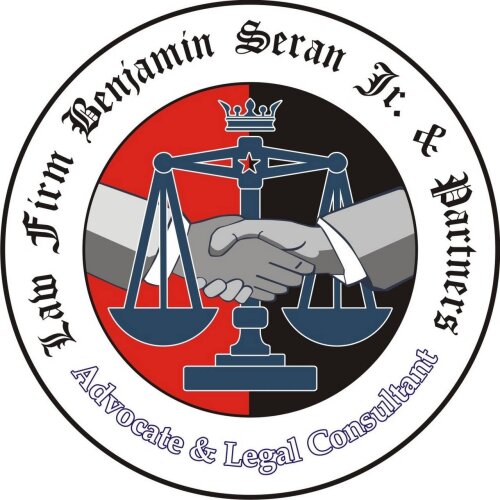Best General Litigation Lawyers in Denpasar
Share your needs with us, get contacted by law firms.
Free. Takes 2 min.
List of the best lawyers in Denpasar, Indonesia
About Litigation Law in Denpasar, Indonesia
Litigation law in Denpasar, Indonesia covers all legal disputes brought before the courts. This extensive field involves civil cases, criminal cases, administrative cases, and other disputes often arising from contracts, torts, property disputes, family issues, and more. The law is rooted in Indonesia's civil law system, influenced by Dutch colonial law and custom law, known as 'Adat' law.
Why You May Need a Lawyer
Given the complex nature of litigation, it is often necessary to engage a lawyer who can guide you through Indonesia's intricate legal system. Some common scenarios include filing or responding to a lawsuit, negotiating a settlement, dealing with private enforcement procedures, establishing a defense, and representing you in court. A trained lawyer is essential when dealing with matters involving fraud, commercial litigation, contractual disputes, family law matters, and criminal prosecution.
Local Laws Overview
Indonesian law, including that applicable in Denpasar, is distinctive as it intertwines Dutch Civil Law, Islamic Law and Adat Law. Key aspects imperative for litigation in Denpasar include the Principle of Legal Certainty and the Concept of Rechtmatigheid. Litigants also ought to acknowledge the role of local government regulation and cultural norms. In civil litigation, it's crucial to understand the judicial hierarchy, which culminates at the Supreme Court level.
Frequently Asked Questions
What is the court process in Denpasar?
The court process begins with a plaint or a complaint, after which the court serves the defendant. Following the plaintiff's plea, the defendant files a response. The court then conducts a preliminary hearing to determine if the case can proceed. If it can, the court will then hear evidence and arguments, after which it will make its judgment.
How long do court cases usually take in Denpasar?
The duration of legal proceedings in Denpasar varies based on the dispute's complexity, the court's backlog, and other circumstances. However, the process can typically take months to years.
Can I represent myself in court?
While it is technically possible to represent yourself in Indonesian courts, it's generally not advisable due to the intricate legal system's complexities. An experienced lawyer can further comprehensively represent your interests.
What are some basic legal terms I should know?
Understanding some basic legal terms can help you comprehend the process better. Penggugat is the plaintiff, while Tergugat is the defendant. Perdata refers to a civil case, and Pidana means a criminal case. Somasi is equivalent to a lawsuit.
What if I can't afford a lawyer?
If you cannot afford legal representation, Indonesia Law provides for Free Legal Assistance. You can consult NGOs or legal aid organisations that offer these services to those who qualify.
Additional Resources
You can access guidance from bodies like the Indonesian Advocates Association (Peradi), which regulates legal practice in Indonesia. Government sites like the Indonesian Supreme Court's official site provide updates on significant litigation matters. Some NGOs also aid in providing legal information and services.
Next Steps
If you find yourself needing legal assistance, your initial step should be securing a lawyer with good standing and expertise in Indonesian Litigation law. It is crucial to discuss openly about your legal problem so your attorney can assess your situation distinctly and suggest an appropriate course of legal action. Remember, a competent lawyer can greatly influence the outcome of your litigation process.
Lawzana helps you find the best lawyers and law firms in Denpasar through a curated and pre-screened list of qualified legal professionals. Our platform offers rankings and detailed profiles of attorneys and law firms, allowing you to compare based on practice areas, including General Litigation, experience, and client feedback.
Each profile includes a description of the firm's areas of practice, client reviews, team members and partners, year of establishment, spoken languages, office locations, contact information, social media presence, and any published articles or resources. Most firms on our platform speak English and are experienced in both local and international legal matters.
Get a quote from top-rated law firms in Denpasar, Indonesia — quickly, securely, and without unnecessary hassle.
Disclaimer:
The information provided on this page is for general informational purposes only and does not constitute legal advice. While we strive to ensure the accuracy and relevance of the content, legal information may change over time, and interpretations of the law can vary. You should always consult with a qualified legal professional for advice specific to your situation.
We disclaim all liability for actions taken or not taken based on the content of this page. If you believe any information is incorrect or outdated, please contact us, and we will review and update it where appropriate.









